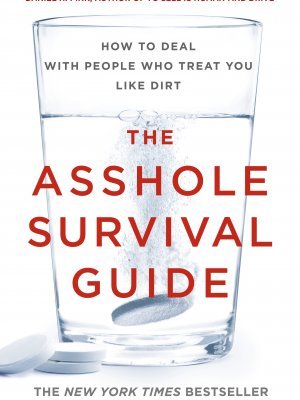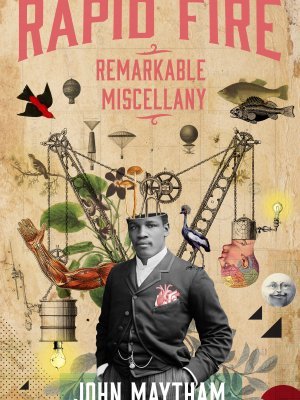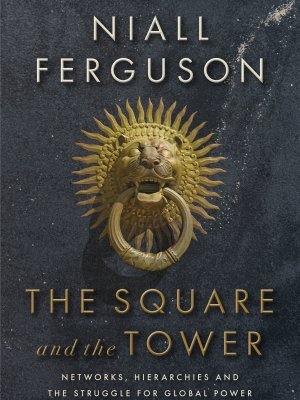The Square and the Tower – Niall Ferguson – Allen Lane – R385
To someone with a hammer, everything looks like a nail, runs the old saying. To Niall Ferguson, one of the most brilliant and prolific historians of his generation, everything in history looks like a network or a hierarchy. Hence the title of his new book: The Square is the Piazza del Campo in Siena, the Tower is the campanile, ‘the majestic Torre del Mangia’, as Ferguson calls it. The juxtaposition of the two gave him the insight that “the tension between distributed networks and hierarchical orders is as old as humanity itself”. In other words, the Internet has not “fundamentally changed the world”.
It’s a fascinating and original insight. For example, why was Paul Revere so successful in warning the people of Boston, Massachusetts of the impending arrival of hated British troops, intent on arresting their leaders and seizing their weapons? Ferguson’s answer is that of all the American Revolutionary leaders, and analysed in terms of network theory, Revere was the best connected. The fact that he was a Freemason was central to his success and Ferguson says that “One plausible conjecture is that Freemasonry was the key network of the American Revolution.”
Henry Kissinger, Secretary of State in, and arch-survivor of, the Nixon administration, is another of the super-connected, a believer in “the lesson that informal networks could provide diplomatic channels superior to foreign ministries and embassies.” Ferguson is also Kissinger’s biographer, so his exposition is meticulous.
But when networks become too powerful, threatening the state or the established order, traditional hierarchies clamp down on them. An example Ferguson opens with is the original group called the Illuminati. Yes, it really did exist, a secret society born in the late 1770s in Bavaria and also, in some respects, a product of Freemasonry. It was a clandestine network dedicated to spreading the ideas of the Enlightenment but banned less than a decade after its founding. By 1787, it had disappeared, after briefly expressing ideas “that fundamentally challenged the religious and political status quo”. The hierarchy struck back.
The problem with Ferguson’s approach appears when he confides that, in fact, hierarchies themselves are really only networks in a different disguise. That may be so, but if everything around us is a network of one or other sort, and, by his own admission, some networks are effective and others not, then is there real value in his hypothesis?
From a business perspective, we know that the larger the corporation, the more hierarchical it is likely to become. We also understand that within these hierarchies, many smaller networks appear: designers who work together, for example, board or management committees, or just people who hang out on the balcony when they need a smoke. Ferguson’s work provides us with a new lens through which to view the interaction between the hierarchy and the networks, to understand how they both operate, and – perhaps – to improve that interaction and harness the power of both.
The Asshole Survival Guide – Robert I. Sutton – Portfolio Penguin – R320
What exactly is an asshole?* In the business world, it’s someone who wastes your time, demeans or bullies you, gropes you, irritates or harasses you, destroys meetings, undermines teams or you personally or even the company. He or she – it can be either – might be someone who talks as loudly as possible or refuses to respond to your questions. It could be someone who is a ‘rules Nazi’ or someone who says one thing to your face and another behind your back. And so on – you get the picture, I’m sure – and I’m also sure that we have all had experience on such assholes and that many of us are suffering right now as a result of their behaviours.
Stanford Professor Bob Sutton first began codifying this enormous and pervasive problem in an article in the Harvard Business Review, and then, in 2007, in a book called The No Asshole Rule. With more than 800 000 copies sold in the US alone and many more around the world, he clearly touched a nerve.
But what he failed to do back then was to deal in depth with how to solve the asshole problem. What options are open to you when you are trying to work in an environment polluted by one of these jerks?
The Asshole Survival Guide is his answer. It’s frank, funny, written in the kind of plain English most of use when describing assholes, covers a swathe of top-quality modern academic research on the subject, and is packed full with genuinely useful tips and techniques to help you rid yourself of the problem.
One caution. Sutton, a psychologist by training, is quick to remind those of us who complain so loudly about the assholes in our offices and factories to hold up a mirror. Think carefully, he suggests, because it might just be that you yourself are the asshole who’s really to blame!
* ‘Asshole’ is US English; in English English, it was originally ‘arse’ or ‘arsehole’. In South African English, I would suggest that the most-often used equivalent in a business or social context, although not a direct translation, is ‘doos’.
Rapid Fire – Remarkable Miscellany – John Maytham – Tafelberg – R250
First and foremost, John Maytham is the respected wine critic of this magazine. You’ll find his latest reviews just over the page. Like many of us, though, he also holds down various other jobs, including, in his case, presenter of the afternoon drive show on Cape Talk, a radio station in Cape Town, a slot he has occupied for many a long year.
During the show, he invites listeners to call in and see if they can stump the general knowledge of him and his colleagues in-studio. If they can they might win a small prize or a T-shirt. He calls the quiz ‘Rapid Fire’ and this new book is a collection of some of the most interesting, amusing and bizarre questions he’s been asked. Trivia on steroids, you might call it.
For example, what is a tsantsa? What is the link between Durban and the Empire State Building? Did Adolf Hitler ever visit Liverpool? What is unique about wombat poo?
You either like this stuff or you loathe it. Personally, it’s like a bag of wine gums. Once I start, I have to have one, then another and then one more after that, until the entire bag is finished. I read Rapid Fire from cover to cover and can’t think of a better way of spending a couple of hours on a rainy afternoon.
By the way, how do you have sex in space? How fat do you have to be to be bulletproof? What is the origin of the word ‘avocado’? The answers are all in Rapid Fire and if you think you can do better, don’t call me, rather call John Maytham any weekday afternoon next time you’re in Cape Town.








